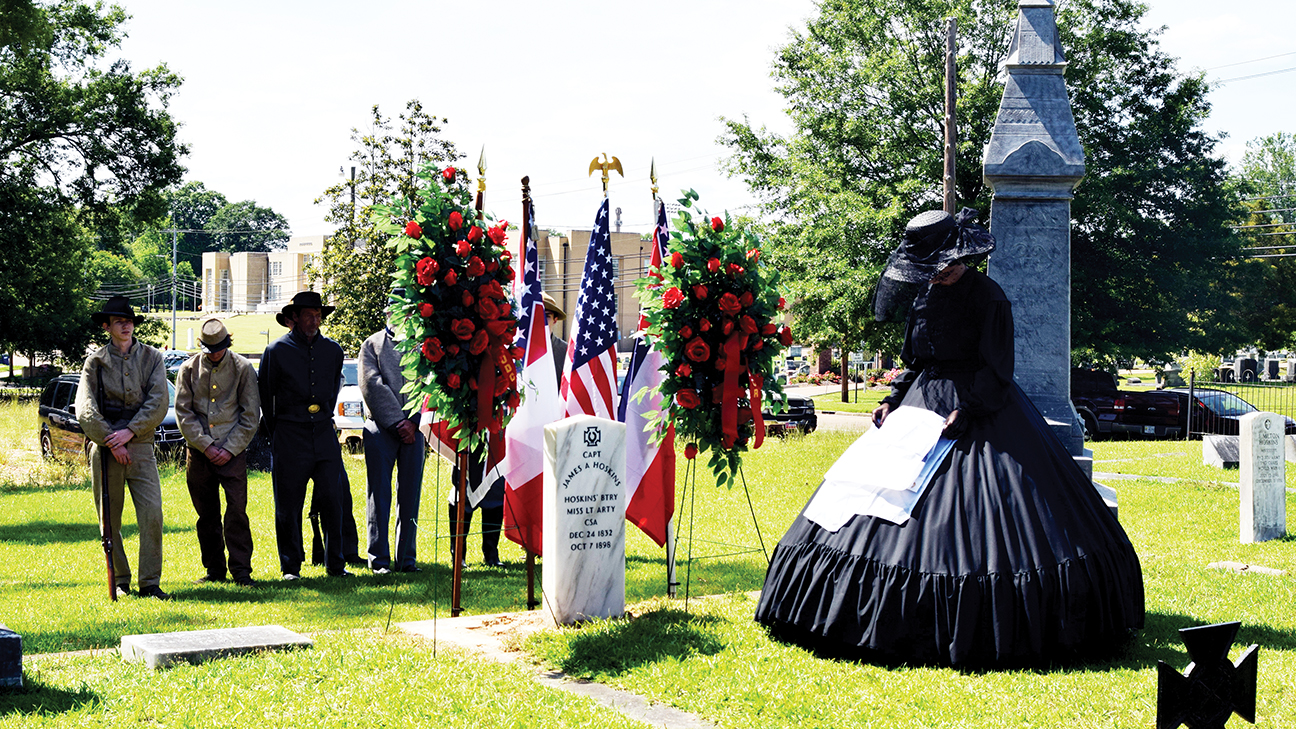VFDs seek tax increase for radios — Radios can’t connect to cops, deputies
Published 8:20 pm Wednesday, July 4, 2018
Lincoln County’s volunteer fire departments need new radios, and they plan to ask county supervisors for help with the bill.
Lincoln County Emergency Management Director Clifford Galey on Monday told supervisors he was preparing a formal request for a small tax increase to help the county’s volunteer fire departments upgrade their radios, a purchase he expects to cost around $350,000. He plans to present the request from the Lincoln County Volunteer Firefighters Association to supervisors at their July 16 meeting, but discussed the problem in advance Monday when pressured by a supervisor.
“I’m coming with a proposal to ask y’all to raise the millage rate by half a mill because we can’t talk,” Galey said. “I’ve applied for grants before and have never been able to get one.”
Galey said the county’s volunteer fire departments still use high-band radios, but other emergency services statewide have been switching to the lower, 700 MHz frequency radios used as part of the Mississippi Wireless Information Network, which was established by law in 2005. The MSWIN radios broadcast to greater ranges, require fewer towers in between and have better signal penetration through buildings.
The Lincoln County Sheriff’s Office, Brookhaven Police Department, Brookhaven Fire Department and King’s Daughters Medical Center EMTs all use MSWIN radios, and the volunteers’ old high-band radios can’t connect to them, leaving emergency responders unconnected in the event of fires, wrecks or weather incidents. Furthermore, Galey said the high-band system can’t go from county line to county line — he estimated there were around 30 “dead spots” around Lincoln County in which volunteer fire fighters’ communications cut off completely.
“During the ice storm, I had a radio in each hand trying to work an accident,” Galey said. “The fire service could not talk to law enforcement — they were talking to me, and I was having to talk to law enforcement and tell them what was needed, and where. That delays it that much longer for somebody who needs help.”
Galey said the fire association has around 150 active volunteers and nearly 30 fire trucks and emergency vehicles, requiring 180 radios to ensure connectivity around the county. The radios they need — both handheld and stationary — cost around $1,800 to $2,000 each, he said.
The one mill supervisors levy on property owners in Lincoln County generates approximately $120,000 annually that is split between the county’s eight volunteer fire departments, Galey said. The half-mill increase the association is requesting would bring in an extra $60,000, which the association plans to use for payments on a loan to purchase the radios.
“We don’t have the money,” Galey said. “I can assure you it’s going to be hardly noticeable on most people’s taxes.”
The volunteer fire departments have not had a funding increase since 2007.
County supervisors weren’t as optimistic. In a year marked by road and bridge problems and numerous other housekeeping projects, the board has grown hyper-sensitive to requests for funding — supervisors routinely ask department heads seeking approval to send employees off for professional development if mandatory pay raises are included as part of the training.
Galey wasn’t planning to mention the tax request Monday, but someone from the association had spread around information on the radios and District 3 Supervisor Nolan Earl Williamson had a copy. Galey told Williamson he wasn’t finished putting together his formal request and asked him to wait another two weeks before bringing it up to the board, but Williamson ignored him and soon the whole board had questions.
District 1 Supervisor and Board President Jerry Wilson wanted Galey to turn to Lincoln County’s lawmakers for help, and District 4 Supervisor Eddie Brown asked if the county’s E-911 program could chip in.
“We have to sub $350,000 per year just to keep 911 operational now,” said county administrator David Fields.
District 5 Supervisor Doug Falvey said the volunteer fire departments should help fund some of the costs.
“There’s some things there can be adjusted,” he said. “The departments can’t be efficient if they can’t communicate, but this is totally put on the county’s back.”
Joe Honea, president of the fire association, said all the departments’ state and local funding goes to the purchase and maintenance of fire-fighting equipment, leaving little leftover for radios. He said he’s searched for grant funding opportunities but can’t find a program that applies.
“If we can’t get help from the supervisors, who can we get help from?” he said. “We need them to help us get moved up.”





